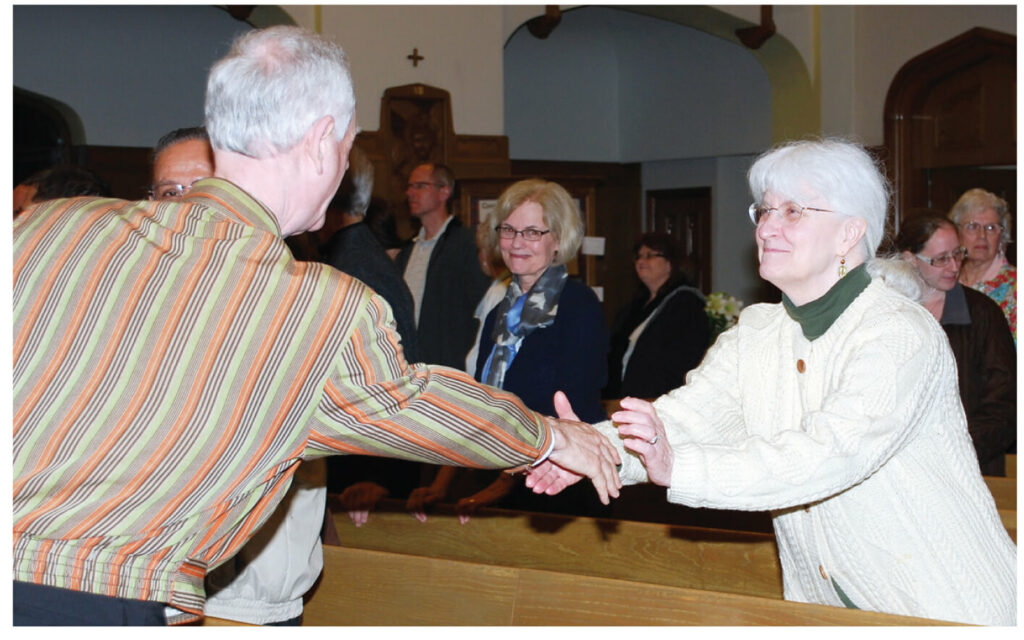
“Jesus is the face of God’s mercy,” Pope Francis tells us. “These words might well sum up the mystery of the Christian faith. Mercy has become living and visible in Jesus of Nazareth, reaching its culmination in him.” In forgiving the thief Jesus shows the balm of mercy clearly.
Jesus is no ordinary king. He reigns from the cross, not a throne. He forgives a thief as his final act rather than command an army to his rescue. In this act of forgiveness Jesus completes the mission he announces in Nazareth, his hometown, when he reads from the scroll of the prophet Isaiah and says he fulfills the words he has read. He is the prophet the Spirit anoints.
The Spirit of the Holy One is upon me and has anointed me
to preach good news to the poor,
to proclaim liberty to captives,
recovery of sight to the blind
and freedom for the oppressed,
to proclaim a year of favor
from God (Luke 4.16-21).
A year of favor is a jubilee, a year of mercy. The Old Testament book Leviticus contains the laws of the jubilee (Leviticus 25). Every 50th year, the Israelites are to right and restore their relationships with one another. For example, they are to free those who have become slaves in order to pay debts and release those imprisoned for unpaid debts. People can buy back ancestral land they have had to sell.
A jubilee then is about forgiving debts, righting relationships, restoring earth, restoring community to equality before God. By proclaiming a year of God’s favor, Jesus demonstates in our midst God’s life-giving power. He is about forgiving sinners, healing the sick, liberating those who are oppressed. He is good news for the poor.
This biblical background calls us to reflect on relationships we need to right, debts we need to forgive, and the renewal the church needs to achieve in order to flourish and serve the human community.
- To whom do you show too little mercy? From whom do you need forgiveness?
- What injustice is in your power to help set right?
Sunday’s gospel comes from Luke’s account of the passion of Jesus. The crowds have abandoned Jesus and their leaders taunt him in this scene.
The charge against Jesus hangs over his head on the cross. It charges him with claiming to be “King of the Jews,” the messiah, the one the Spirit anoints to heal and set people free.
One of the two criminals hanging with Jesus in crucifixion recognizes Jesus is the anointed one, God’s chosen and true king of the Jews. This criminal, whom Christians traditionally call the good thief, seeks the pardon and mercy only a king in Israel can give.
His words recall Jewish prayers of old. Jews asked God to remember them, to keep them in existence. To remember is to give life and relationship.
Jews remembered God by reciting and singing the stories of God’s saving deeds among them. They asked God to continue being God for them and to continue doing such things among them. In asking Jesus to remember him, the good thief asks for relationship and continuing life with him.
The good thief also testifies that Jesus is innocent. This man believes God’s kingdom will come, will vindicate Jesus, and identify him as the messiah of Israel.
Immediately Jesus responds with welcome and assurance, “This day you will be with me in paradise.” His words transform the past of the thief and include him among the kin of God.
- With whom in your family, your work, or your neighborhood do you need to reestablish relationships?
- What people belong to God but challenge our usual boundaries of kinship?
In this crucifixion scene of mercy Luke gives us the gospel in cameo. Luke tells his community and us that Jesus is God’s Spirit-filled prophet, innocent of charges brought but faithful to the mission for which the Spirit anointed him. He brings good news to the poor and freedom to the poor, the indebted, the exploited. Jesus embodies servant leadership; he gives himself rather than subordinate people to serve him.
To the good thief, Jesus acts as the bearer of God’s mercy and forgiveness. He sets the captive free. Thus, Luke emphasizes the mystery and universality of God’s favor and Jesus’ mission and message: the poor, the ignorant, and wrongdoers who recognize their need are the chosen ones and the kin of God.
Pope Francis’s prayer for this feast echoes the gospel. “We will entrust the life of the Church, all humanity, and the entire cosmos to the Lordship of Christ, asking him to pour out his mercy upon us like the morning dew, so that everyone may work together to build a brighter future.”
- For what innocent people do you speak out like the good thief?
- When like the soldiers do you mock the invisible power of love and forgiveness?
- When do you, like the bystanders, remain silent and refuse to enter into a struggle or a celebration?
